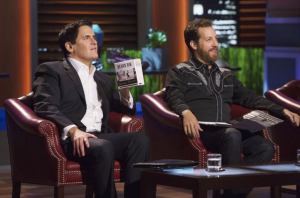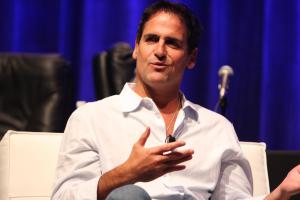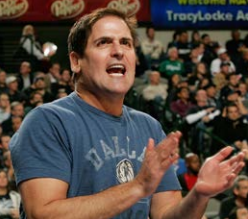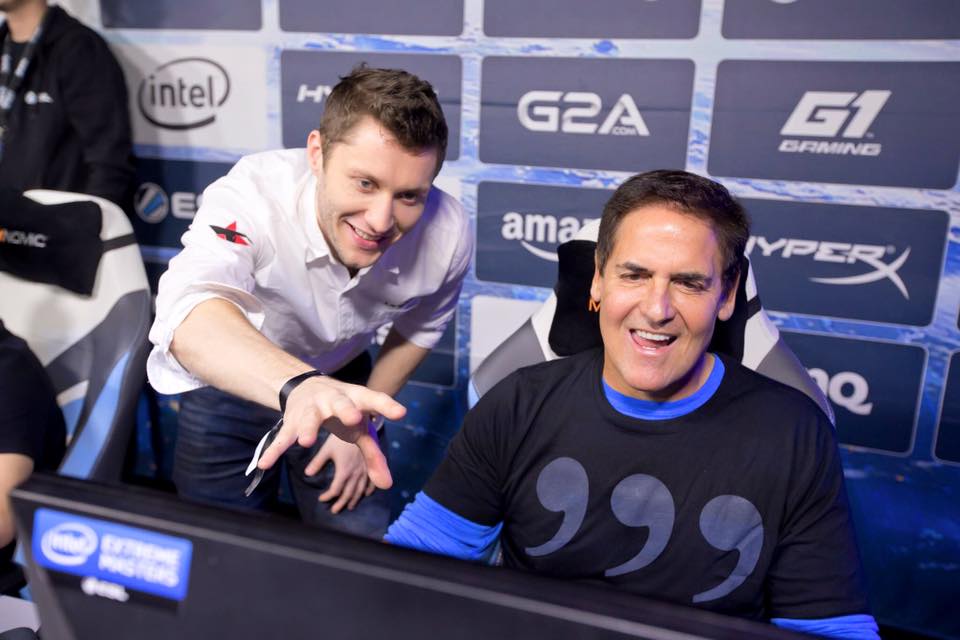Mark Cuban is walking through the halls of The Venetian hotel in Las Vegas and every passerby wants a minute with the man of the hour. He’s just wrapped up a conference where he, Shaquille O’Neal, the CEO of Intel and others talk about tech investing in sports and share how technology will shape future sports experiences. Bystanders begin to recognize the most colorful sports franchise owner of the 21st century, and immediately want to have a word, a picture, or offer a proposition.
One suggestion particularly catches the business-minded Cuban’s attention, and he casually fires off his email on the fly as he walks off to another meeting.

Over 170,000 people were in town for CES, the world’s largest technology trade show, and the last thing a man who sold Broadcast.com to Yahoo! for $5.7 billion is going to do is call a timeout on a potentially good deal. Shark Tank mode never ends.
It’s the first week of January, and Cuban’s enjoying his sixteenth year as owner of the Dallas Mavericks. Thirty-six hours before our meeting, he was in a dog pile celebrating a buzzer-beating, double-overtime game winner. As much as he’s revered for his past successes, he’s always looking toward sprinkling some of his special pixie dust on the next big undertaking, which is also part of the reason why he’s in town.
***
In recent years Cuban has turned business investments and entrepreneurship into somewhat of a sport, dishing out money like Steve Nash in his heyday. Today is no different. He uses the stage to announce his investment into Fantasy Labs, a platform offering daily fantasy sports (DFS) subscribers with data, analytics, Las Vegas odds and player trends to develop and test models for creating lineups.
Most of Cuban’s ventures have been a slam dunk. Some have turned out worse than a Brendan Haywood signing. How does he measure success for his investments? “By how much money I made from them,” he tells [a]listdaily.
The ebullient Cuban is especially excited about Fantasy Labs because he believes it further champions the progress of eSports, which he thinks is the next frontier of sports. Never a fan of playing from behind, Cuban invested $7 million into Unikrn last year. Unikrn lets consumers bet real money on the outcomes of video game competitions. Welcome to the future.
“I think it can be huge,” he says. “Like all of my businesses I look for leverage points. Unikrn and Fantasy Labs won’t be my last investments in the space.”
Startups like Unikrn and Fantasy Labs could someday signal the start of a seismic shift in the sports landscape: legalizing professional sports gambling in the United States. NBA Commissioner Adam Silver even penned an op-ed in The New York Times in 2014 calling for the legalization and regulation of sports betting. Cuban, whose Mavs won a championship over LeBron James and the Heat in 2011, has long supported that notion and thinks sports betting is inevitable.

He took the CES stage and discussed DFS, and how multiple states are banning companies like FanDuel and DraftKings. “You have to be an idiot,” Cuban said, to think playing DFS games is like sports betting, or poker. “It’s not gambling, it’s not gambling, it’s not gambling,” he repeated. “The only people who think it’s gambling, as opposed to skill, are people who haven’t played or people who have other political agendas, because that’s also very important these days.”
According to Eilers Research, eSports wagering is estimated to hit $23.5 billion by 2020, generating revenues of $1.81 billion worldwide. Cuban discovered Unikrn when it’s company CEO Rahul Sood appeared on a TV interview on CNBC. Two minutes later, Cuban called. “I’ve known Rahul for a while and respected the work he has done,” Cuban says. “When he came to me with Unikrn I liked what they had accomplished to that point, the upside opportunity and the industry. That’s a trifecta that was the selling point.”
The man who’s witnessed mostly every minute of Dirk Nowitzki’s Hall of Fame-bound career classifies eSports as a “sport,” and even likens it to playing five-dimensional chess against the world. “It is accepted by a mainstream audience. You can’t find a kid 14-to-21 (years old) that doesn’t know about it. It’s just new to a lot of people outside that age bracket.”
Utah Jazz forward Gordon Hayward is a big-time League of Legends gamer, as is former Lakers three-time champion Rick Fox with his latest investment in a LOL team. So are owners of the Sacramento Kings. How can professional sports athletes further help legitimize eSports to its detractors?
“I think they make people ask what they’re doing. Just like they ask why I’m involved,” Cuban continues. “There is no reason to try to legitimize eSports to anyone. ESports is a real industry. People can choose whether to connect to it themselves. The participation numbers and the online viewership numbers speak for themselves. What matters is that people who love eSports really get into it. They watch clips and matches. They play the game. There is no need to try to convince those on the outside.”
When Cuban is briefed that the eSports market was estimated at $747 million in 2015, and it’s expected to grow 150 percent by 2018, he warns that those numbers mean nothing for brands looking for marketing and partnership opportunities. “It’s a sucker’s game to look at industry size and think it means anything,” he says.
What he is excited about though is the NBA working with partners to extend its games into the eSports world by turning titles like the NBA2K franchise into active competitive online platforms. He even has an open-door policy for hosting such events at the American Airlines Center in Dallas just like the ones that take place at Staples Center in Los Angeles.
***
Hours after he unveils Fantasy Labs and lays a verbal smackdown on anyone condemning DFS, Cuban is at a swanky Vegas nightclub at the Cosmopolitan, joined by rapper T.I. and fellow Dallas icon Tony Romo, among others. Cuban remains easily accessible just as he was earlier in the day. Allowing unfiltered access has long been his persona.

Fans walk up to casually greet him. There’s nothing flashy or pretentious about his garb. He’s donned in his customary and casual courtside attire: jeans and a polo. The fitted shirt shows off that at 57, his physique is just as defined as his shrewd business acumen.
The outspoken Cuban is a contrarian and the antithesis of the archetypal boss. He’s served ice cream at a Dairy Queen, been slammed through a table at a WWE event, drew cats and sold them for $1,000 a piece, sold Mavs merchandise with an image of his likeness using a urinal, starred as the president of the United States in the movie Sharknado 3 and been suspended and fined close to $2 million for his cantankerous behavior toward NBA officials. In short, he does whatever the heck he wants and puts his money where his mouth is.
Aside from the du jour of headline-grabbing material, Cuban presides over a pool of projects – specifically at the helm of AXS TV – but there’s way too many to list from his $3 billion portfolio.
One multifold notion that rings true for the self-made man: You’re only as good as the company you keep.
Follow Manouk Akopyan on Twitter @Manouk_Akopyan.

